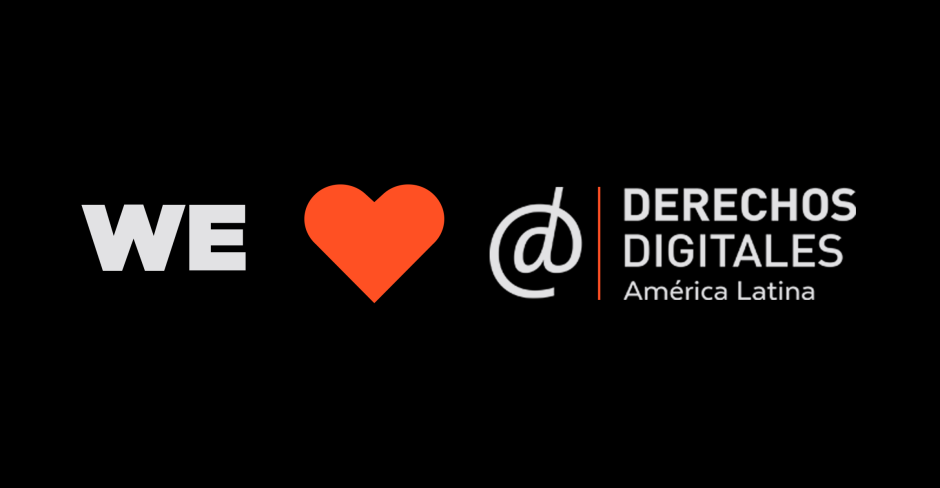Defending human rights in the technological environment: A powerful piece from Derechos Digitales
Digital rights are crucial in these turbulent times. Our friends at Derechos Digitales do a great job explaining why.
Long-time followers of the Internet freedom scene will likely have heard of Derechos Digitales — the Santiago, Chile-based digital rights group has been at the forefront of many of the most important policy battles of the past few years. At OpenMedia, we’ve been proud to stand alongside them as part of the Our Fair Deal coalition, in the long fight against the TPP’s restrictive copyright proposals.
A few weeks ago, Derechos Digitales president María Paz Canalespublished a powerful piece entitled “Defending human rights in the technological environment” — you can check out the original in Spanish on their website right here. The piece explains just why digital rights are so crucial in these turbulent times noting, for example, that
We live in a world connected through technologies that should no longer be considered a privilege but a necessity for social participation and for having access to a good quality of life and a life with dignity.
We think this piece is so important that we wanted to help give it a wider airing — so a couple of Spanish-speaking members of your OpenMedia team translated it into English (thanks Marianela and Jes!).
The translated piece is copied in full below — we hope it inspires you as much as it did us! And you can learn more about the great work Derechos Digitales do over at their website — https://www.derechosdigitales.org/— and on their Facebook and Twitter feeds.
Defending human rights within the technology context: our wager from Latin America.
María Paz Canales (President, Derechos Digitales)
Today, Derechos Digitales starts a new stage in our work in defence of fundamental rights in Latin America. Our new path gears towards identifying a changing world for users, governments, and the civic society at large.
All around the world we are living in turbulent times, even in those places where long democratic traditions and the fight for the recognition and protection of human rights have been a staple. Despite many advances, today Latin America faces a proliferation of threats (in both its public and private sectors) to the preservation of its people’s freedom and the exercise of their fundamental rights –in particular in areas surrounding personal safety, freedom of expression, and privacy, as well as in the exercise of economic, social, and cultural rights that guarantee people their full participation in and access to social wellbeing.
The events in the physical world seem so urgent and serious that, at times, they lead us to see the use of technologies as a secondary concern within a context of intolerance, violence, and the social fragmentation happening at a global scale. However, technologies have permeated people’s lives to a point where it is no longer possible to ignore them when discussing the protection of people’s rights or the prevention of risks of any kind. We live in a world connected through technologies that should no longer be considered a privilege but a necessity for social participation and for having access to a good quality of life and a life with dignity.
The design, use, and regulation of technologies –done by either public or private entities– should at its core take into account human beings and their dignity. This should be done while ensuring that considerations surrounding public safety, economic development, and freedom of entrepreneurship, amongst others, are not the only concerns put on the scale when making decisions surrounding the development and implementation of information and communication technologies (ICTs).
In this sense, these processes should be nourished by the lessons learned in the fight for the recognition and defence of fundamental rights. Threats to cybersecurity, surveillance through ICTs by private and public entities, privacy violations, and restrictions to free expression and the diffusion of knowledge, are only some of the ways in which –through technology– the threats to the human rights of citizens of the globalized world become materialized.
From my current role leading the already experienced team of Derechos Digitales, I take on the mission to tackle these problems with a vision of collaboration, coordination, and joint work alongside the people and organizations that have been working within the fields of tech and human rights in Latin America. At this moment we have focused on crystallizing the cumulative experience of the organization to put it at the service of the region, all while being well aware that the Latin American context is complex and diverse. We consider that it is urgent to incorporate new voices to the work and discussion of these issues in order to build an articulated voice from Latin America and thus ensure that the progress promised by technology materializes in this part of the global south, holding respect for human dignity at its core.
We know we can borrow from the experiences and work from other latitudes, but the unique economic, social, and cultural conditions of Latin America push us to maintain a critical and vigilant attitude surrounding the use of technologies in a way that allows us to have access to their promised benefits while at the same time ensuring these processes start-off based on the principle of respecting and guaranteeing the human rights of those who live in the region.
We know we are not alone in this task, and that is reassuring. The many diverse voices speaking up in defence of human rights are essential to enrich the decision-making processes surrounding the use of these technologies; the fights of today and those to come demand from us to organize and aggregate our strengths for the protection, guaranteeing, and the practice of our human rights.
Learn more about Derechos Digitales on their website, Facebook, and Twitter feeds.



 Take action now!
Take action now!
 Sign up to be in the loop
Sign up to be in the loop
 Donate to support our work
Donate to support our work